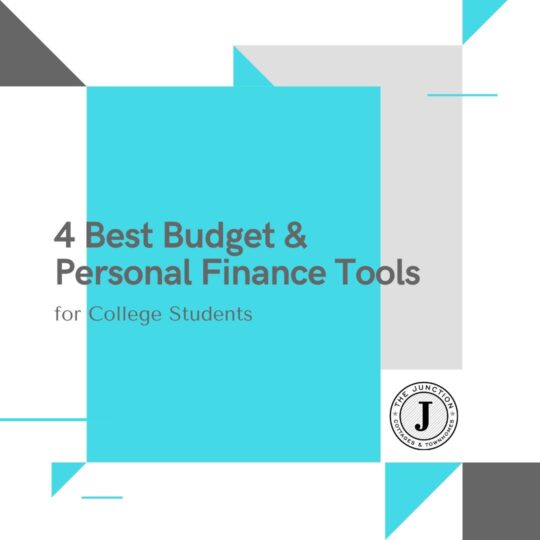Best Budgeting Tools

It’s no secret that the public school system typically fails when it comes to teaching personal finance and budgeting. Ironically, we live in an age in which personal finance skills are at their most needed. It can be so hard to be a student on a budget, especially if you try and compare your spending always with those around you.
Trying to keep up with your favorite Instagram influencer is a common thing and it doesn’t mean just buying expensive toys. During your college years, you may feel pressured to spend excess money on restaurants, entertainment, and travel. While going out and having fun is good, it’s best to do so only when you have a budget you can stick to and ensure you aren’t slipping into any unhealthy finance habits.
So how do you get started with good finance habits? How do you make sure that you’re spending what you have and saving what you can? The following is a look at a few great personal finance tools that can help you get started:
4 Best Budget & Personal Finance Tools for College Students
1. Mint
Mint is perhaps the most popular money management and finance tracking app and for good reason. This is a free app and yet offers a ton of exciting features and capabilities. What you do is sync your finance accounts and the app will keep track of each account. By connecting with those accounts, the app will register your spending via card almost immediately so that you can check your spending in one easy location any time of day or night. This makes it easy to stay within budget and it has special tools to make zero balance budgeting a breeze. Other cool features include free credit score monitoring and bill pay reminders.
2. PocketGuard
While Mint is great for general tracking, sometimes you need something that will go a step further. PocketGuard is that app. This budgeting app not only helps track your spending but it also does as its name suggests and helps users guard against overspending. It does this by creating a ‘pocket’ part that makes it easy to view how much spendable money you have left after paying bills and adding savings. It even includes a feature that will build you a personalized budget that’s specifically based on your expenses, income, and finance goals.
Users can download the PocketGuard app for free and enjoy most of the available features, or they can opt for a paid version that unlocks all the features for $3.99/month or a discounted $34.99/year. Personally, we think the free version is just fine for most one-income users.
3. You Need a Budget (YNAB)
YNAB is the type of app that has a cult following and is a must download for A-type personalities. That’s because this budget app turns budgeting on its head and is designed to help users build their budget by income, giving every dollar a purpose. You filter your money by living expenses, debt payments, investments, and savings until there is no dollar unaccounted for. Obviously, this takes a lot more attention than the aforementioned budget apps which are more of a tracking and recording system. One particularly thing of note on this app is its goal tracking features that can be very rewarding for the money conscious.
4. Acorns
This is normally a paid app but college students can get it and access all features for free. And it’s certainly worth at least trying for a month. Acorns isn’t a budgeting app but rather a unique personal finance one that focuses on micro-investing. Its creators built the app around the idea of a modern portfolio theory. As a user, you download the app, answer a couple of questions, and then the app will recommend a personalized and efficient portfolio for you. Those portfolios may include bonds, stocks, and/or real estate, with your unique selection depending upon your preferences.
Once you’ve determined the right portfolio set-up for you, then Acorns will ask to link up select debit and/or credit cards to its programs. Then, whenever you make a transaction with a linked card, Acorns will automatically round up that transaction to the nearest dollar and deposit the difference into a holding account. When the holding account has a minimum of $5, Acorns will invest the amount into the market according to your profile. This is the basic feature, and a pretty fantastic one at that, but there are other exciting features as well that make this a smart, robust personal finance tool. And, don’t forget, it’s completely free for college students.
Getting Money Smart Now is a Great Idea
While it may seem like too soon to start budgeting and investing, you really can’t start early enough with being money-wise. Practicing smart money habits today is the best way to develop life-long habits that will help set yourself up for success.